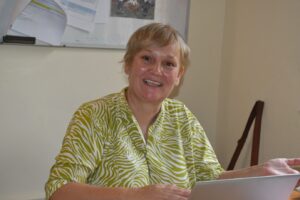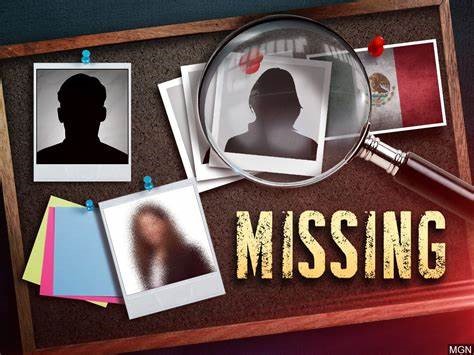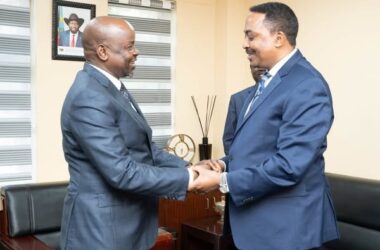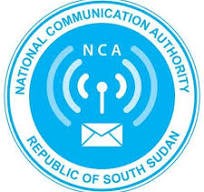By William Madouk
On the International Day of the Disappeared, approximately 6,000 persons remain missing in South Sudan, according to the International Committee of the Red Cross (ICRC).
The figure highlights the need to exert more efforts to locate and reunite families affected by the crisis.
Observed annually on August 30, the International Day of the Disappeared serves as a reminder of those who have disappeared due to conflict, migration, and natural disasters.
In an exclusive interview, No.1 Citizen’s reporter William Madouk speaks with Delfine Bermijn, head of the ICRC’s family protection program, to shed light on the issue of missing persons in South Sudan.
As families continue to hold out hope for reunification or clarity regarding the fate of their loved ones, Bermijn offers insights into the challenges and initiatives aimed at addressing this concern.
Qn. Firstly, tell us about the International Day of the Missing Person and its significance.
Ans. First of all, thank you very much for passing by, the International Day of the Disappeared, which will be commemorated tomorrow, the 30th of August.
It’s a really very important day for the whole Red Cross and Red Crescent movement. It’s an international day that is commemorated all over the world. So, it’s not just in South Sudan, it’s really all over.
And at that day we really try to remember that there are so many people all over the world who are missing, who disappeared; mainly focusing on people who disappeared due to the conflict, maybe any kind of situation of violence, internal violence, migration, or even natural disasters.
I represent the International Committee of the Red Cross but of course here in South Sudan we work extremely closely with the South Sudanese Red Cross and this is the case also in all the other countries.
We really try to stand with the missing persons, with their families, and we try to give an answer to their questions, to their needs. So, for us it’s very important, first of all, it’s very important for all those families who have missing people, and that’s quite a lot of families worldwide.
For us who are trying to support them, it’s really important that they feel that they’re not alone and that those missing persons are not forgotten.
We try always also to engage the authorities for example here in South Sudan the Ministry of Humanitarian Affairs is very much involved in the file but several other actors as well, so, we’re really happy that they also stand up that day and show their solidarity.
Qn. Based on your statistics, how many missing persons in South Sudan so far?
Ans. Well, that’s a very good question, but it’s a little bit of a tricky answer because nobody really knows how many missing persons there are. We can only know how many families approached us and who opened the file, who opened the case.
For example, in South Sudan, since its independence, since 2011, we have approximately 11,000 families who came to us, the ICRC, or who came to the SSRC, the National Red Cross, and who approached and opened a file.
So, they were looking for people. Now out of these 11,000; so far, we managed to locate about 5,000 people. So, it means that it’s a process. Sometimes it can take a long time, but at least there are already some results.
But it also means if you locate 5,000 people, then there are still about 6,000 who are not yet located. And for us, as well as for SSRC, the search process always continues.
Years, decades, we don’t give up. Unless a family at some point would tell us okay, now for me it’s enough but we listen to the families – the needs are there 10 years later, 20 years, later 30 and years later more we try to continue to search for the families.
Qn. How do the family of the missing person get in contact with you in case they want to register a case?
Ans. They can come to us, the ICRC. So, we have here the headquarters, let’s say here in Juba.
We also have like offices in Yei, Malakal and Wau. Or they can go to the South Sudan Red Cross. Same thing, same family, same process.
And of course, the South Sudan Red Cross, they have like 21 branches, I believe they’re very accessible all over – they also have their headquarters here in Juba and so they can reach out, coming to us.
If a person maybe lives too far away from an office or something at the end, I will give you a few phone numbers which is kind of a hotline phone number. so it’s free of charge anybody who has a query a question about a missing relative can call us on that phone number.
First, we do a kind of small conversation, we’ll try to think, to figure out, is this something we can help them with? and if yes, then we call them back or we invite them.
or if it’s too difficult for them to move maybe if we’re moving to their area in the near future, we move to them.
I have to say, in South Sudan, you had the conflict in 2013, 2016 mainly, really the very difficult period and many opened cases. Each time, gradually, some of these cases get resolved and some of these cases not.

Qn. How many cases ICRC registered this year alone?
Ans. So far, I think, this year those who approached us are 184 exactly opened a new case this year, and 173 whose cases got positively closed.
It’s not necessarily the same cases. Maybe the ones who were really close where [what] we had a positive answer could be cases who were open two, three years ago, even ten years ago.
To give you a little bit of an idea, for example, last year to compare, last year we were still at about 600 both new cases being opened and cases being positively closed. So where we found the solution, where we could locate the person.
Qn. Did the International Committee for the Red Cross manage to trace and reunite the missing person with their families so far? If yes, how many cases have you settled?
Ans. That’s a very good question. So, we have to make a little bit of a distinction. So, if a person is separated, is missing let’s say, and if they are just normal adults, for us the main goal is to find the person again and then give the opportunity that they know where the other person is.
So that can be a phone call, that can be a letter and that both adults are back in contact that’s the most important thing the ICRC or the SSRC we only do really physical reunification.
if we’re talking about a minor, somebody less than 18 years old and who’s looking for their family so, in that case, we would really reunite them – bring them back to their family
[and to] make sure that they’re in good hands or we sometimes do it also for adults but then we’re talking about vulnerable adults.
like in the beginning of this year, we had one case of a gentleman who was a vulnerable adult, he had some serious health concerns and we brought him back to his family up north. For the children, this year there has been no reunification yet.
Since the conflict is a little bit calmer now, there are less pending cases. Until a few years ago. The number was quite considerable but in the last few years most of the children are already been reunited with their families and there’s some cases a few cases that are still pending.
Sometimes, there are cases which are really difficult to trace the families because we’ve been looking already for such a long time trying different options, different possibilities and so far, we haven’t found them.
Qn. You have mentioned that there were some years when cases of missing persons shot up, which year bracket?
Ans. As I said before, the number was very high because really it was the heat of the conflict. let’s say around 2016, 2017, 2018, even until 2020 and then from that moment onward you see each year just a little bit less people come[ing] forward.
But I have to say sometimes, maybe some people also don’t know that they can still approach us. Even if your loved one, or your close relative has gone missing in the last five years.
Let’s say, and it’s in a way related to the conflict or even if it’s related to migration, you can still come to us there is no time limit.
The basic service is trying to go and look for the missing person; of course, that can take quite a while and it can take quite a lot of effort. I have to say we’re super lucky because we have a vast network of volunteers.
For the moment, active volunteers who help us in tracing and looking for people is about 180, that’s quite a lot of people and they’re really all over South Sudan. So, they help us out. Sometimes we even ask the help of community leaders – they have a lot of information and they sometimes really put us on the right path to find this missing person.
Just a few years ago, we thought like okay now we really have to go to some of these families and also ask them like, what happened, what are your concerns? But then the other concerns were of course also psychosocial.
A lot of them suffered anxiety, nightmares, depression, like really difficult times and there’s no real help around. So already for that, we try to seek help from our colleagues who are experts, who offer like [MHPSS] or mental health support services, and we started an accompaniment program.
That’s how we call it, an accompaniment program. It’s basically like we selected some families of the missing, so we started in Juba and also in Wau and relatively small groups, there is an expert who offers them MHPSS support, hopefully in September.
We can do the same thing in Malakal; this year, and we really hope to do the same thing also next year for other locations. this is something that we know because the families told us this mental support is really important and so we hope that we can continue.
Then once the sessions were done, we even talked to some of them and if we see that this person is quite active, s/he could be really engaged in this kind of microfinance project.
We have other colleagues from another team who try to help them out as well, so they sit with them to do a kind of evaluation – they talk, they ask them what kind of little business would you like to do?
Do you think you can handle? and then we give them this kind of support as well, they get a little training; they get a certain sum of money and then they can start a new project.
Qn. What are the things that are not in your jurisdiction, which you think that government should do?
Ans. That’s a very good question. Maybe you can also ask or reach out to somebody from the Ministry of Humanitarian Affairs.
I have to say, in a very positive manner, that here in South Sudan, we’re quite impressed by the Ministry of Humanitarian Affairs because they themselves a few years ago they stepped forward and they said we want to be really leading this.
We want to get engaged, we want to do something and so they themselves – they took a lot of initiatives they started a technical working group with several experts they gather regularly they think, they try to have this kind of process going on last year.
we just give them the technical support; we’re not doing the work they’re doing all the work. We just give them the simple technical support so they hired somebody a South Sudanese legal specialist to drafted a bill of the missing persons.
Of course, this is still in the very beginning stage – the ministry himself agreed already they brought it now to the Ministry of Justice – if this works out, this law of the missing persons would be fantastic because it describes the situation of a missing person from a humanitarian point of view.
It’s really like, okay, you as a missing person and you as a family, what are your rights? What can we do for you? How can we support you? So, it’s a very humane bill.
Qn. Do you think the government of South Sudan is doing enough?
Ans. I think all of us, I’m not just talking about governments, and as I said already, we’re quite impressed with what the ministry [of Humanitarian Affairs] is doing here.
We’re not always that lucky in other countries, so we’re quite impressed with what the ministry is doing.
I think, we should keep in mind that whatever we’re doing now, we can always do more. Also, As ICRC, the government, also you as a journalist, anybody because it’s such a complex situation.
A missing person US or Sudanese, I’m sure you can imagine how difficult it is IF you lose somebody and then it can take years before you get any news – so, whatever we are doing the government is doing other organizations are doing you as a journalist that’s doing raising awareness.
Qn. based on your registered figures which of the 10 states and three administrative areas leads?
Ans. If I am not mistaking Upper Nile states is slightly higher, but there are a few other states as well.
And again, these are just figures of people who came to us. And in any context, whether it’s South Sudan, Nigeria, Middle East, whoever comes to us and registers and is looking for a person,
we know who you are, and we have your figures, but most likely it’s only the tip of the iceberg. Probably the reality all over the world means that there are probably a lot more missing people all over the world.
For example, globally for the moment, the Red Cross and Red Crescent movement, we have about 239,000 people who came to us.
So, who opened the case, who said, okay, I’m looking for a lost relative. That’s already quite a lot, but we’re all aware that there must be a lot more people missing all over the world, not just the South Sudan.
I think that’s one of the key messages I would like to share. Thank you very much, I really appreciate it. Thank you very much, William. Thank you for your time. I hope we will engage more and we will talk in the future.



